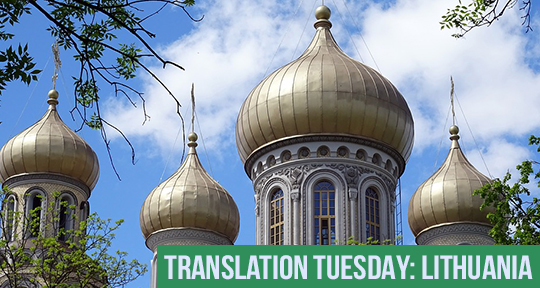During a routine mushroom-picking expedition in the forest, a wheelchair-bound child gets separated from her grandfather and is left to face the forces of nature on her own. In today’s Translation Tuesday, Ilka Papp-Zakor takes us on a fairy-tale adventure that comes to a surreal and haunting conclusion.
Grandpa’s beard was made of cotton, and his face of crinkled crepe paper. His hands shook, so he almost always spilled his tea, but his eyes were beautiful. I liked to watch him read his old books in the evenings, squinting by the light of the oil lamp—we didn’t have electricity in our shack—rocking back and forth in his rocking chair, the corners of his eyes smiling delicately from time to time, which is how I could tell where he was in his book. I knew all his books by heart. That’s how our evenings would pass. He’d rock in his chair, I’d stare at him, and sometimes, when I’d grow bored of staring, I’d roll around in my wheelchair. Grandpa didn’t like that, because the wheels made an ugly sound on the uneven plank floors. But he loved me anyway.
He said I’d be a beautiful girl if it weren’t for my distorted features, my underdeveloped legs and mangled hands, but I was happy there was something about me that he liked. I had long, curly, golden hair, a little reddish. Grandpa said the bridge of my nose was freckled, though I’d never seen it myself, because our shack didn’t have a mirror either, and I couldn’t lean so far out of my wheelchair over puddles to catch my reflection clearly. In any case, Grandpa said these features were my sex appeal, and that when I’d have kids, I should strive to pass onto them only these two features, because they wouldn’t get very far with the rest. At the time, it was difficult to imagine that I’d someday have a family, and kids of my own, because I didn’t know anyone else besides Grandpa.














